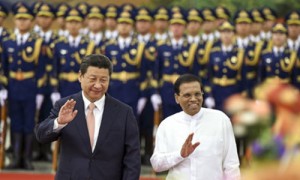There are nine national holidays every year, not an exceptionally large number. But it is supplemented by seven "optional" holidays granted at employers' discretion.
Some of those apply to certain professions, such as Teachers' Day, Commerce Day and Civil Servants' Day in October.
Then there are the state and municipal holidays.
InRio de Janeiro, whose citizens are known for their laid-back approach to life, there are three local holidays: Saint Sebastian Day, Saint George Day and Black Consciousness Day.
Other local holidays remember events such as the founding of towns, colonial massacres and a conflict known as the Ragamuffin War.
The World Cup has brought the phenomenon to a whole new level.
When FIFA demanded Brazil pass a wide-ranging "General Law of the Cup" regulating the organization of the tournament, Brazilian legislators used the occasion to add some more holidays in between provisions on trademark protection and special visas.
The law, passed in 2012 and widely criticized as too generous to FIFA, provides for an afternoon off every day thatBrazilhas a match, as well as a holiday for host cities every time they host a game.
Critics of the decision to spend a record $11 billion on the World Cup say the days off are just another way to hide the country's overburdened transport systems and infrastructure problems.
Rio andBelo Horizontein the southeast have three extra days off, the western city ofCuiabaand the capitalBrasiliahave four,Sao Paulohas six.
InSalvadorin the northeast, the combination of weekends, national holidays, local holidays and match days means people will only have to show up at work for four full days during the three-week period from June 12 to July 2.
Many schools have also started their July vacations in June to let students take part in the World Cup party.
众所周知,巴西是足球的王国,巴西人民对足球的热爱更是举世闻名。据法国媒体6月15日报道,本届世界杯期间,为了让国民尽情观赏赛事同时解决国内交通拥堵难题,巴西政府专门通过立法增加了不少“世界杯专属假日”。
巴西原本就是一个公共假日较多的国家。据统计,巴西每年有9个全国性法定节假日,7个由雇主自行决定的假日,例如商人节、教师节、公务员节等职业性节日。除此之外,巴西还有不少州级和市级节日,以“闲适之城”里约热内卢为例,当地就有3个地方性节日。
而世界杯的到来,令巴西的节假日数量上升到一个全新的高度。
2012年,在国际足球联盟(FIFA)的要求下,巴西通过一部《世界杯普通法》,在广泛范围内协调赛事组织工作。借此机会,巴西议员们在商标保护、发放特殊签证等法律条款中增加一项新内容——设定“世界杯专属假日”。
按照规定,本届世界杯期间,只要有巴西队的比赛,当天下午就放假,而各个主办城市还可在该市比赛日放假。由此,里约热内卢和贝洛哈里桑塔的假期增加了3天,库亚巴和巴西利亚的市民可以多休息4天,圣保罗则可以多放6天假。
巴西东北部城市萨尔瓦多是本届世界杯的主办城市之一。从6月12日到7月2日,算上周末、国家法定节假日、地方节假日以及“世界杯专属假日”,萨尔瓦多的市民只需要上4个全天班。
世界杯的到来,也为巴西的学生们带来福利。为了让孩子们充分参与这项足球盛事,当地许多中小学将暑假时间提前。







